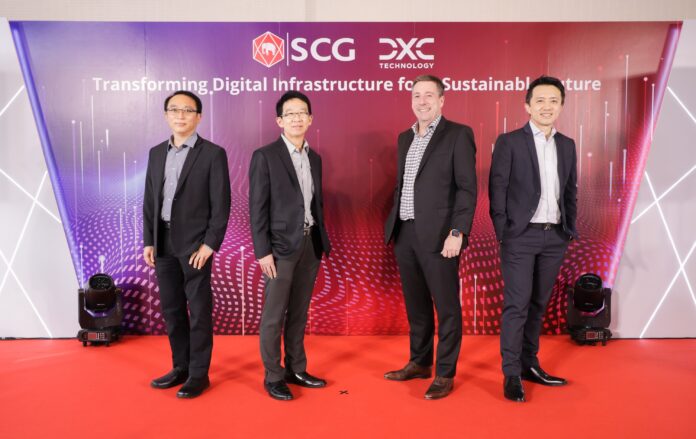SCG (Siam Cement Group) is extending by five years its partnership with DXC Technology to strengthen the Thai conglomerate’s transformation efforts with the delivery of IT infrastructure and solutions including cloud, applications, information technology outsourcing, security and modern workplace.
DXC said these solutions are all aimed at enhancing customer experiences, setting ESG standards, and ensuring business continuity.
“We have worked closely with SCG to understand their operational requirements and applied our deep industry knowledge to design a technology roadmap that will improve SCG’s overall performance, enable them to better respond to their customer’s needs and achieve greater carbon efficiencies,” said Apichart Arunkunarax, managing director at DXC Technology Thailand.
Yuttana Jiamtragan, SCG’s VP for corporate administration, said the extension of their partnership with DXC will enable business units, including the Cement-Building Materials Business, SCG Packaging (SCGP), and SCG Chemicals (SCGC) in their digital transformation journey and create versatility in the current business climate.
“Integrating new digital technology into our IT Infrastructure such as automation and cloud technologies, as well as artificial intelligence will help SCG to be more agile and resilient,” said Yuttana.
“The development of innovations and solutions will also provide seamless customer experiences with stringent standards at a time where agility and data security are priorities,” he added.
Through this partnership, DXC and SCG have collaborated with a specific focus on infrastructure and outsourcing services, including application implementation and support such as the upgrade and migration to a cloud-based ERP (Enterprise Resource Planning) solution for the Cement-Building Materials Business unit – focused on cement and concrete product manufacturing and distribution.
Since its implementation, SCG has experienced faster deployment to the cloud with minimal user disruption, supported by the ability to scale ERP systems to meet changes in their customer demand and data volumes.
















